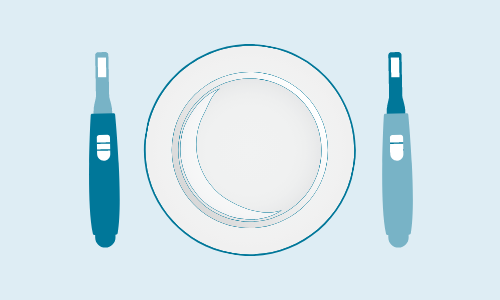


Muslims around the world will be fasting ranging between 12-19 hours each day. Some studies have suggested that Fasting during Ramadan helps the whole body get ready for conceiving. This is through detoxification and regulating ovulation in women, creating a perfect environment for conception. Fasting sets the scene for the body to balance its hormones while maximizing the liver’s ability to do its cleansing job. It also allows for burning excess fat and lowering stress levels, all of which could be damaging to reproductive ability. It has also therefore been suggested that fasting increases fertility in women and boosts their chances of conception.
It’s important to consider how balanced and complete the meals are that you eat in Iftar and Suhoor. Hydration, proper protein and fat intake, as well as eating foods that are nutritionally dense in a variety of minerals and vitamins, are essential to make sure your body is getting adequate reserves for its hormonal functioning.
Here are some fertility-friendly foods, you can add for Iftar and Suhoor to boost your fertility

– Dark leafy greens:
We should all be having dark green vegetables daily, but they’re especially important when you’re trying to get pregnant. Kale, spinach, and Swiss chard contain essential prenatal nutrients like calcium, iron, and folate (which also helps protect against birth defects), not to mention tons of vital daily dietary fiber.
– Dairy products:
It pays to bone up on dairy (milk, yogurt, and cheese) when you’re trying to conceive. Adding dairy to your preconception diet is good not only for bone health but also — potentially — for your reproductive health.
– Lean animal protein:
Turkey and lean chicken and lean beef, all these protein sources are chock-full of iron — an important nutrient that helps beef up fertility. studies show that women who pump up their iron intake during the preconception period have a higher fertility rate than iron-deficient women. But steer clear of high-fat cuts of meat and don’t overdo any kind of animal protein, that’s because research shows that too much protein (even lean protein) can decrease fertility.
– Oysters:
It is the food chain’s most concentrated source of zinc, a nutrient that’s crucial for conception. Zinc deficiency can disrupt the menstrual cycle and slow the production of good-quality eggs — neither of which is good for fertility. Not a fan of oysters in any form? Find zinc in smaller amounts in other fertility-friendly foods, including beef, poultry, dairy, nuts, eggs, whole grains, and legumes.
– Complex carbs:
there may be a link between your carb choices and your fertility. you can consume carbs of the complex kind (whole grains, beans, vegetables, and fruits) as opposed to the refined varieties (white bread, white rice, refined cereal, sugary treats of all types). Digesting refined carbs causes an increase in blood sugar and insulin in the body — and increased insulin levels can disrupt reproductive hormones and mess with the menstrual cycle Complex carbs, on the other hand, take longer to digest and don’t cause spikes in insulin levels — they may also promote regular ovulation.
-Fruit:
Antioxidant-rich foods like fruit and berries are high in vitamin C and folic acid, which provide healthy fetal growth after conception. Raspberries, blueberries, and strawberries all contain natural antioxidants and anti-inflammatory phytonutrients, two components that greatly improve fertility and protect your body from cell damage and cell aging — and this includes cells in your reproductive system.
– Fatty fish:
Salmon, sardines, herring, and other types of fatty fish are swimming in fertility-boosting benefits, thanks to the high levels of omega-3 fatty acids they boast. Loading up your diet with those fabulous fats allows for increased blood flow to reproductive organs and may help to regulate